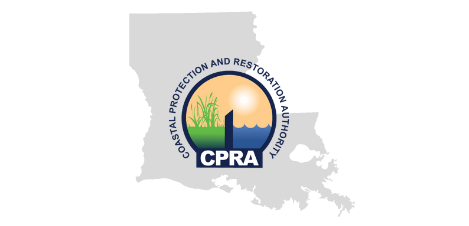Sign Up. Stay Informed.
December 1, 2022
Contact: coastal@la.gov
BATON ROUGE, La. – Following two years of engagement, vulnerability assessments, and the exploration of adaptation options to better meet the needs of coastal Louisiana’s residents now and into the future, twelve state agencies have released “resilience report cards.” The report cards, developed by resilience coordinators in participating state agencies, are accompanied by a report by the Chief Resilience Officer (CRO) outlining additional cross-agency findings and recommendations for better preparing the state for the consequences of environmental change.
“It is clearer than ever before that environmental conditions across coastal Louisiana are producing direct and indirect impacts on the core missions and functions of every agency in state government,” said CRO Charles Sutcliffe. “When you talk to people living along the coast about resilience they of course want levees and ecosystem restoration, but immediately point to other needs that span all aspects of their lives and community. So, enlisting more state agencies to proactively engage with the changes happening along the coast and adapt their programs, services, and infrastructure is the right approach to meeting the needs of our communities today and for thriving in the future.”
Findings from the report cards show that impacts from both extreme weather events and more regular but less severe challenges like nuisance flooding interrupt people’s lives, affect the delivery of vital services to the people of the state, cause damages to infrastructure and assets that impact the state budget, harm the economic health of communities, and threaten efforts to manage and protect the natural environment. By developing adaptation options within different agencies the state is better able to address those vulnerabilities and coordinate efforts to build toward a more holistic condition of resilience, one that tends to the needs of people and culture, the economy and workforce, and the built and natural environments.
Multi-agency and statewide resilience strategies were also identified in the accompanying report which include the formalization of the role of the CRO and resilience coordinators in state government, the integration of resilience criteria into the capital outlay process, pursuing an Enhanced Hazard Mitigation Plan from FEMA, and furthering the communication and coordination among agencies to maximize pre-disaster mitigation and resilient recovery opportunities.
In 2020, Governor Edwards joined ten other states by naming a CRO to advance a cross-agency, holistic approach to the challenges and opportunities associated with the impacts of environmental hazards in Louisiana’s coastal area. The work was conducted with the support of the Center for Planning Excellence and the Coastal Protection and Restoration Authority with additional funding from the Walton Family Foundation, the Kresge Foundation, the Greater New Orleans Foundation, and the Foundation for Louisiana.
An executive summary, agency report cards, and the full report can be found at https://coastal.la.gov/our-work/key-initiatives/adaptivegovernanceinitiative/

